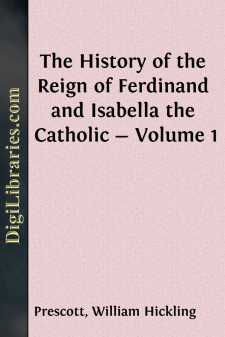Categories
- Antiques & Collectibles 13
- Architecture 36
- Art 48
- Bibles 22
- Biography & Autobiography 816
- Body, Mind & Spirit 145
- Business & Economics 28
- Children's Books 17
- Children's Fiction 14
- Computers 4
- Cooking 94
- Crafts & Hobbies 4
- Drama 346
- Education 58
- Family & Relationships 59
- Fiction 11834
- Foreign Language Study 3
- Games 19
- Gardening 17
- Health & Fitness 34
- History 1378
- House & Home 1
- Humor 147
- Juvenile Fiction 1873
- Juvenile Nonfiction 202
- Language Arts & Disciplines 89
- Law 16
- Literary Collections 686
- Literary Criticism 179
- Mathematics 13
- Medical 41
- Music 40
- Nature 179
- Non-Classifiable 1768
- Performing Arts 7
- Periodicals 1453
- Philosophy 66
- Photography 2
- Poetry 897
- Political Science 203
- Psychology 45
- Reference 154
- Religion 516
- Science 126
- Self-Help 85
- Social Science 82
- Sports & Recreation 34
- Study Aids 3
- Technology & Engineering 59
- Transportation 23
- Travel 463
- True Crime 29
Our website is made possible by displaying online advertisements to our visitors.
Please consider supporting us by disabling your ad blocker.
The History of the Reign of Ferdinand and Isabella the Catholic - Volume 2
Description:
Excerpt
INTERNAL AFFAIRS OF THE KINGDOM.—INQUISITION IN ARAGON.
1483-1487.
Isabella enforces the Laws.—Punishment of Ecclesiastics.—Inquisition in
Aragon.—Remonstrances of the Cortes.—Conspiracy.—Assassination of the
Inquisitor Arbues.—Cruel Persecutions.—Inquisition throughout
Ferdinand's Dominions.
In such intervals of leisure as occurred amid their military operations, Ferdinand and Isabella were diligently occupied with the interior government of the kingdom, and especially with the rigid administration of justice, the most difficult of all duties in an imperfectly civilized state of society. The queen found especial demand for this in the northern provinces, whose rude inhabitants were little used to subordination. She compelled the great nobles to lay aside their arms, and refer their disputes to legal arbitration. She caused a number of the fortresses, which were still garrisoned by the baronial banditti, to be razed to the ground; and she enforced the utmost severity of the law against such inferior criminals as violated the public peace. [1]
Even ecclesiastical immunities, which proved so effectual a protection in most countries at this period, were not permitted to screen the offender. A remarkable instance of this occurred at the city of Truxillo, in 1486. An inhabitant of that place had been committed to prison for some offence by order of the civil magistrate. Certain priests, relations of the offender, alleged that his religious profession exempted him from all but ecclesiastical jurisdiction; and, as the authorities refused to deliver him up, they inflamed the populace to such a degree, by their representations of the insult offered to the church, that they rose in a body, and, forcing the prison, set at liberty not only the malefactor in question, but all those confined there. The queen no sooner heard of this outrage on the royal authority, than she sent a detachment of her guard to Truxillo, which secured the persons of the principal rioters, some of whom were capitally punished, while the ecclesiastics, who had stirred up the sedition, were banished the realm. Isabella, while by her example she inculcated the deepest reverence for the sacred profession, uniformly resisted every attempt from that quarter to encroach on the royal prerogative. The tendency of her administration was decidedly, as there will be occasion more particularly to notice, to abridge the authority which that body had exercised in civil matters under preceding reigns. [2]
Nothing of interest occurred in the foreign relations of the kingdom, during the period embraced by the preceding chapter; except perhaps the marriage of Catharine, the young queen of Navarre, with Jean d'Albret, a French nobleman, whose extensive hereditary domains, in the southwest corner of France, lay adjacent to her kingdom. This connection was extremely distasteful to the Spanish sovereigns, and indeed to many of the Navarrese, who were desirous of the alliance with Castile. This was ultimately defeated by the queen-mother, an artful woman, who, being of the blood royal of France, was naturally disposed to a union with that kingdom....







